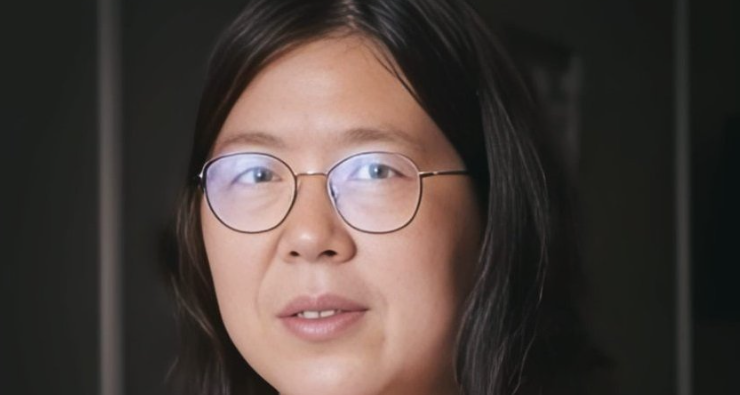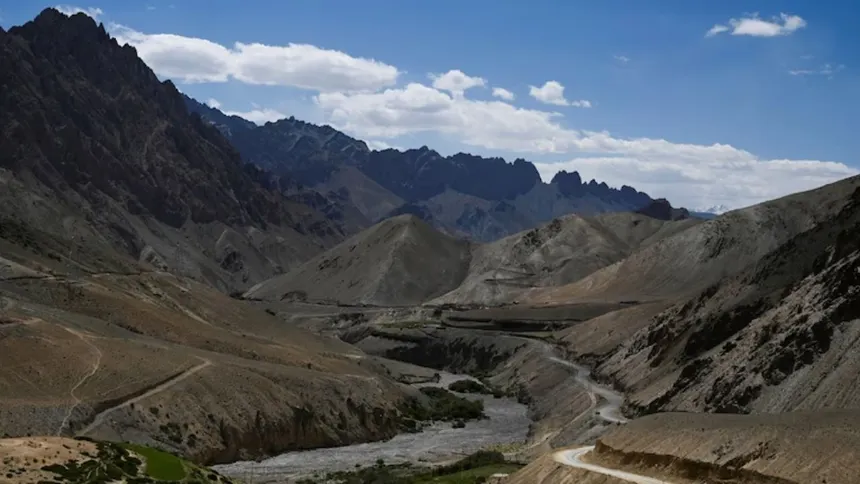China: Human rights advocates are subject to harassment, monitoring, and international repression in addition to being criminalized.
Civic space in China is rated as ‘closed’ by the CIVICUS Monitor. China’s authoritarian state ruled by the Chinese Communist Party (CCP) has systemically repressed fundamental freedoms. Human rights defenders and activists report harassment and intimidation; unfair trials; arbitrary, incommunicado and lengthy detentions; and torture and other ill-treatment for exercising their fundamental rights. Protests do occur but are quickly repressed, and critical civil society groups have been shut down.
August 2024 marked two years since the UN released a report determining the possible commission of ‘crimes against humanity’ against Uyghurs and other Muslim peoples by Chinese authorities. The Office of the High Commission on Human Rights (OHCHR) said that “many problematic laws and policies remain in place” and that allegations of human rights violations, including torture, must be “fully investigated”. The Office also called for a “full review” with a human rights emphasis of the legal frameworks governing Chinese policies related to national security, counter-terrorism and minority rights.
Civil society groups called on the High Commissioner to “hold regular and substantive briefings with victims, survivors, and their representatives, and establish a mechanism to locate and free missing and wrongfully detained family members.”
In October 2024, the European Parliament passed an emergency resolution condemning the Chinese government’s persecution of Uyghurs and urging China to immediately and unconditionally release detainees, including Uyghur economist Ilham Tohti and Gulshan Abbas. The resolution, which was adopted by a vote of 540 in favour, 23 against and 47 abstentions, strongly condemned China’s “repression and targeting of Uyghurs with abusive policies, including intense surveillance, forced labor, sterilisation, birth prevention measures and the destruction of Uyghur identity, which amount to crimes against humanity and a serious risk of genocide.”
In recent months, the authorities have detained human rights defenders including Zhang Zhan, Tibetan activist Tashi Wangchuk and artist Gao Zhen, and convicted Yu Wensheng and Xu Yan for their activism. There has also been surveillance and harassment of bloggers and activists and transnational repression of critics in Japan. A protest in Shanghai by factory workers was also documented.
Association
Re-detention of woman human rights defender Zhang Zhan
Citizen journalist and activist Zhang Zhan was re-detained in September 2024, less than four months after being freed from prison. On 26th November 2024, it was reported that she had been formally arrested on charges of “picking quarrels and provoking trouble”, an overly broad provision which is weaponized to target, intimidate and harass human rights defenders, activists, journalists and dissidents.
According to Amnesty International, Zhang Zhan, who is being held at the Pudong New District Detention Center in Shanghai, appears to have been targeted because she has continued to advocate for human rights since her release from jail in May 2024.
Following her release, Zhang Zhan expressed concern that her online speech was being monitored by authorities. She was regularly and repeatedly taken in for police questioning in August 2024, with some interrogations lasting over 10 hours.
As previously documented, Zhang Zhan has been vocal against human rights violations and suppression of dissent in China. She has used her legal training and knowledge to help other human rights defenders to claim their rights through legal channels. In February 2020, Zhang Zhan visited Wuhan city in Hubei province of China to report on the COVID-19 outbreak from the ground. She went missing in Wuhan in May 2020. It later emerged that she had been taken by the Chinese authorities and detained in Shanghai. In December 2020, a court convicted her of “picking quarrels and provoking trouble” after a sham trial and sentenced her to four years in prison.
On 29th October 2024, the Suzhou Intermediate Court in Suzhou, Jiangsu Province, convicted human rights lawyer Yu Wensheng and woman human rights defender Xu Yan for “inciting subversion of State power”. Yu Wensheng was sentenced to three years in prison while Xu Yan was sentenced to one year and nine months in prison. Yu and Xu were detained by police in April 2023 while on their way to meet with high-level European officials visiting China.
Yu Wensheng is a human rights lawyer based in Beijing. He has represented cases of victims of China’s crackdowns on petitioners, civil rights activists, and his fellow human rights lawyers. Yu Wensheng has also used his legal skills to advocate for reform in multiple sectors of Chinese society. He previously served a four-year sentence from 2018 to 2022 after being convicted for “inciting subversion of state power”.
Xu Yan is a woman human rights defender who campaigned for the release of Yu Wensheng, to whom she is married, as well as for other human rights defenders and their family members who face harassment, surveillance, and arbitrary detention.
Transnational repression of critics in Japan
Chinese authorities have been trying to intimidate people from China living in Japan who take part in activities critical of the Chinese government.
According to Human Rights Watch, the Chinese government’s harassment of people from China, including those from Xinjiang, Tibet and Inner Mongolia, and their family members back home, appears aimed at deterring members of the diaspora from protesting against the government or engaging in events deemed politically sensitive. The Chinese authorities have also sought out diaspora members to provide information on others in Japan.
Between June and August 2024, Human Rights Watch interviewed 25 people from Hong Kong and mainland China, including from Xinjiang, Tibet and Inner Mongolia, who were living in Japan. All had been involved in peaceful activities that the Chinese Communist Party deems unfavourable or threatening to one-party rule, such as holding public events to raise awareness about crimes against humanity in Xinjiang, promoting Tibetan culture, or having a reading club discuss a book by an activist from Inner Mongolia.
China conducts the most sophisticated, global, and comprehensive campaign of transnational repression in the world. Freedom House’s conservative catalogue of direct, physical attacks since 2014 covers 214 cases originating from China, far more than any other country.
Prominent Tibetan language rights advocate Tashi Wangchuk was detained for 15 days on charges of ‘disrupting social order’ and allegedly spreading false information on social media, and has been under strict surveillance.
According to Radio Free Asia (RFA), Wangchuk, 39, was arrested by the Internet Police Unit in China’s Qinghai province on 20th October 2024. After an investigation, he was detained for 15 days in the Yulshul Tibetan Autonomous Prefecture until his release on 4th November 2024.
He was accused of posting “false information” on social media platforms since June 2024, for “repeatedly insulting and ridiculing government departments” and “negatively impacting the online environment and public order in society” by allegedly distorting and rejecting government policies.
Wangchuk’s detention comes as China intensifies its policies to suppress — or even eradicate — Tibetan and other ethnic languages and cultures and replace them with Mandarin and Han Chinese customs.
Surveillance and harassment of bloggers and activists
The authorities have continued to monitor and harass activists and other individuals, both off and online, especially ahead of politically sensitive dates or major events.
In September 2024, The Guardian reported that China’s internet police went from targeting bloggers to their followers. In recent months, followers of influential liberal bloggers have been interviewed by police as China widens its net of online surveillance.
In the same month, authorities in Beijing stepped up security measures ahead of celebrations of the 75th anniversary of the People’s Republic of China on 1st October 2024, issuing restrictions on who may enter the city. Police have been following rights activists and lawyers, detaining their family members, or preventing them from entering Beijing. The moves form part of China’s “stability maintenance” operations. One of the first to be targeted was Li Wenzu, the activist wife of prominent rights attorney Wang Quanzhang, who was detained on entering Beijing.
In October 2024, RFA reported that authorities across China targeted dissidents and petitioners ahead of a key meeting of the ruling Communist Party, placing them under house arrest or escorting them out of town on enforced “vacations.” Among those targeted include political journalist Gao Yu, rights lawyer Pu Zhiqiang and political commentator Zha Jianguo.
Dissident Chinese artist Gao Zhen was detained in August 2024 on suspicion of “insulting revolutionary heroes and martyrs.”
The Gao Brothers are known for their provocative sculptures, which critique the founder of the People’s Republic of China, Mao Zedong, and his regime. The Gao Brothers’ dissident artwork has been shown at many venues overseas, but not publicly displayed in China since they signed an open letter from dissident physicist Fang Lizhi to then supreme leader Deng Xiaoping during the pro-democracy movement of 1989.
Gao Zhen left China in 2022 to live permanently in the United States but had been visiting family when he was taken by authorities in Hebei province. According to his brother, Chinese authorities stormed the brothers’ art studio in Sanhe City on 26th August 2024 and confiscated several artworks.
Spoofing or insulting China’s revolutionary “heroes and martyrs” was made a crime in 2021, as part of a newly amended criminal code, under a campaign by China’s leader, Xi Jinping. It carries a penalty of up to three years’ imprisonment.
Hundreds of workers at an automotive trim company in Shanghai blocked a major highway in the city in November 2024 amid a protest over plans for mass layoffs.
The workers from the state-owned Shanghai Guoli Automotive Leather Decoration Co. scuffled with police as traffic backed up on the Husong Highway. Police detained at least one worker, prompting others to shout and join in the scuffle.
Employees have been protesting since receiving a notice on 9th October 2024 offering a payout of three months’ minimum wage to anyone who volunteered to resign, amounting to a total of payment 8,070 yuan (USD 1,113).
Social media posts from people identifying themselves as workers from the company said the “voluntary resignations” weren’t actually voluntary. They said they are entitled to three months’ compensation based on their average wage over the previous 12 months.
Freedom House that monitors dissent in China noted that it has “documented a rise in protests over recent months by consumers and investors amidst a sluggish economy.” The majority of these protests are led by workers (41 percent).













